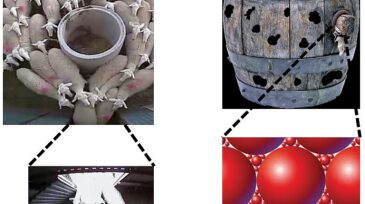Completions
Intelligent completions could improve many of the world’s oil and gas wells, but not all are suited to the technology. There is another option.
Casing deformation has emerged as a major challenge in China’s unconventional oil and gas fields, prompting the development of new solutions to address the issue.
The US supermajor is using one of its lowest-value hydrocarbon products to generate double-digit production increases in its most prolific US asset.
-
Fluids introduced into a reservoir for stimulation typically take the path of least resistance and, therefore, frequently go into areas with open flow paths. In many cases, those areas are not the targets of stimulation.
-
A new report on shale gas from UNCTAD addresses the balance between providing affordable energy to developing countries and the agency’s climate change goals.
-
Longmont, Colorado's City Council voted to give final approval to the city's $3 million agreement with TOP Operating and Cub Creek Energy that officials have said will end oil and gas drilling from the surfaces of properties within the city, as well as city-owned properties east of Longmont.
-
The Scottish Government has been urged to explain its position on hydraulic fracturing after telling a judge that no ban is in place and ministers still have to make up their minds.
-
Higher oil prices and higher-intensity completions are increasing the need for US onshore pressure pumping horsepower. Will still recovering pressure pumpers and equipment manufacturers be able to step up?
-
As the resources that the industry develops become increasingly challenging, access to a broader range of options and new and developing approaches allows more-efficient and -effective recovery.
-
SponsoredA Midland Basin case study on estimating production, drainage volume, and interference from multiple stacked wells.
-
Wells often end up producing oil and gas far longer than expected. But that often requires the operator to commit to building and maintaining facilities for the long haul.
-
Prompted by concerns about possible leaching from phenolic novolac resin-coated proppants (RCPs) during operations, Fairmount Santrol conducted analysis that showed no leaching of free formaldehyde or free phenol from its phenolic novolac RCPs.
-
Australia’s Northern Territory on 17 April lifted a nearly 2-year moratorium on hydraulic fracturing to extract gas, unlocking vast onshore reserves in the resource-rich region and raising the possibility of other provinces following suit.

![JPT_2025-09_GuestEd1_SS_382853197[4].jpg](https://assets.spe.org/dims4/default/d929328/2147483647/strip/true/crop/850x566+0+1/resize/850x566!/quality/90/?url=http%3A%2F%2Fspe-brightspot.s3.us-east-2.amazonaws.com%2F8a%2F95%2Fe4e82cb54fd597d497a5b1267f8a%2Fjpt-2025-09-guested1-ss-3828531974.jpg)











